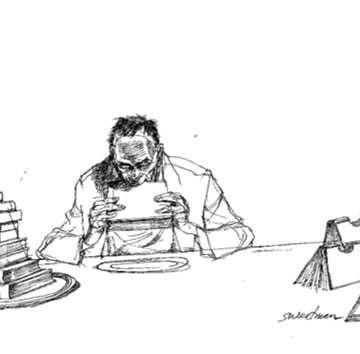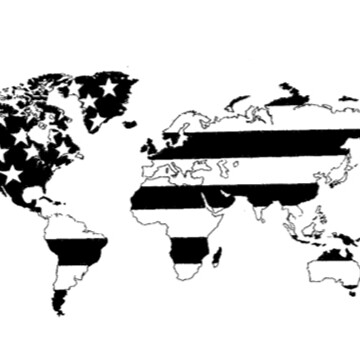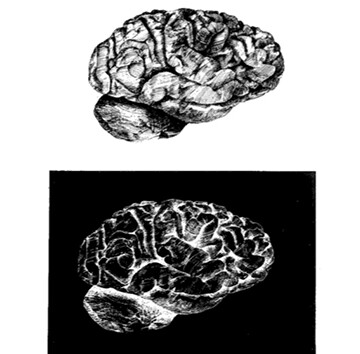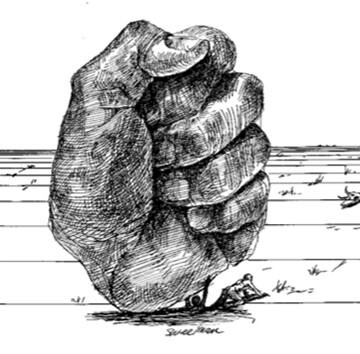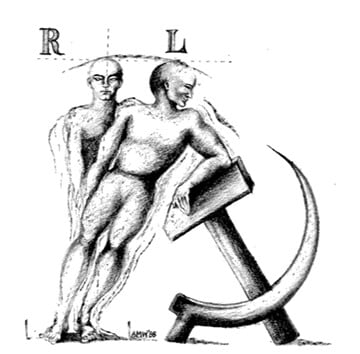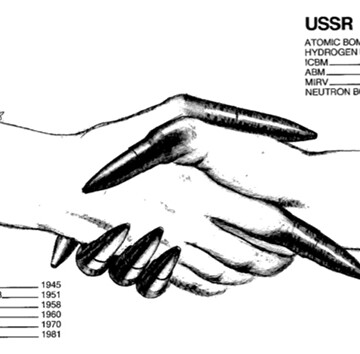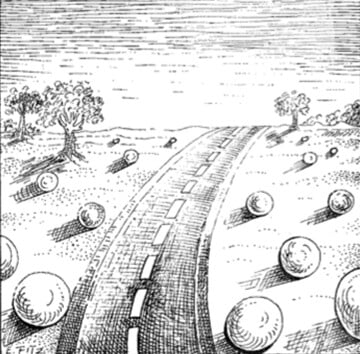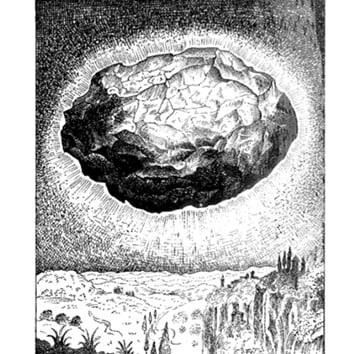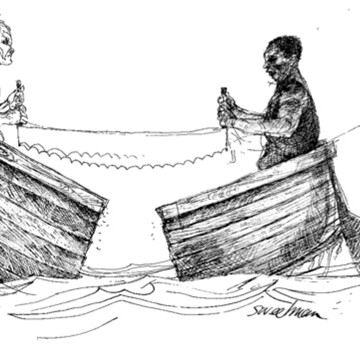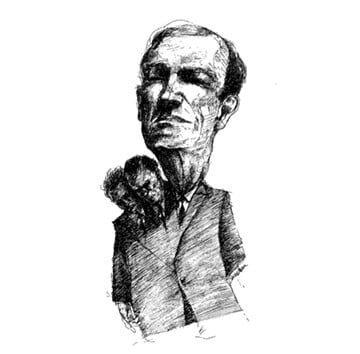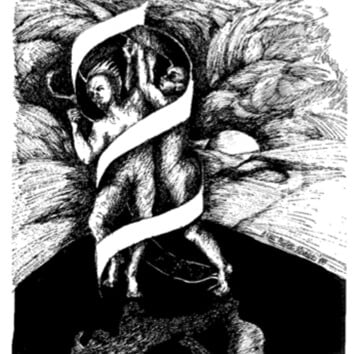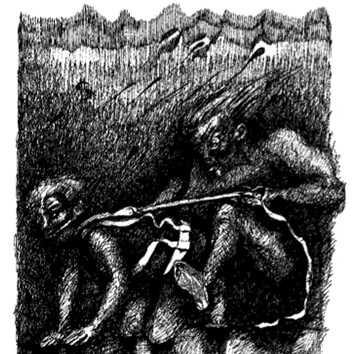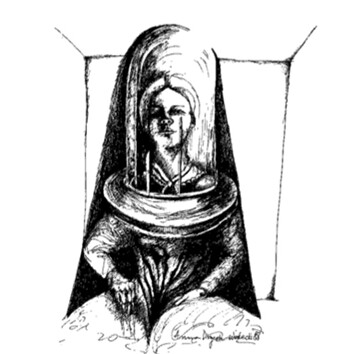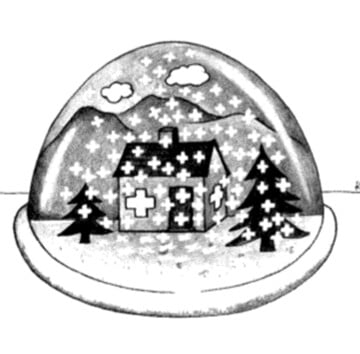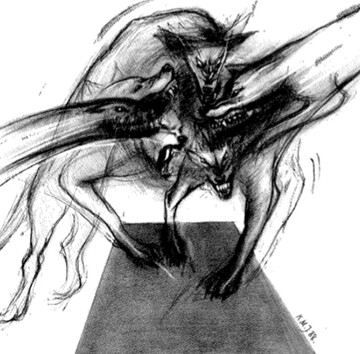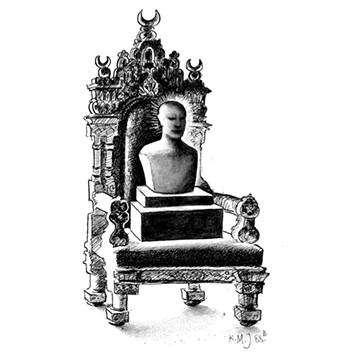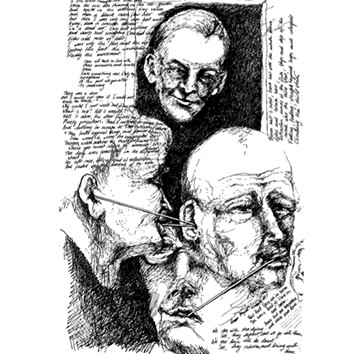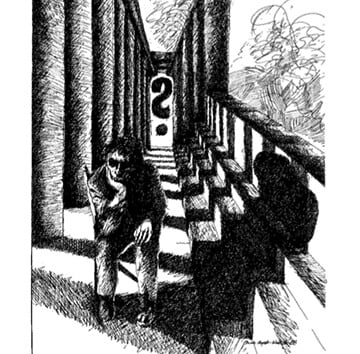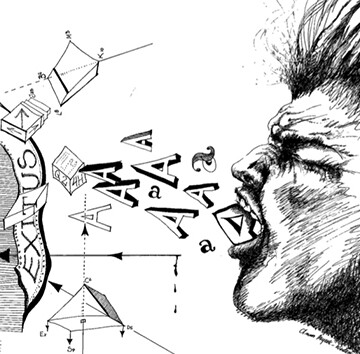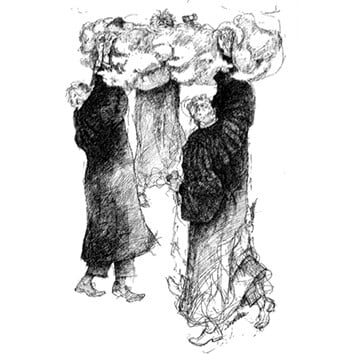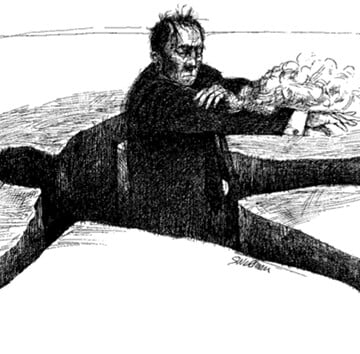When Bob Woodward published Veil: The Secret Wars of the CIA, in October of 1987, two things made that book news. One was his assertion that William Casey, the late director of the CIA, had admitted to knowing about the transfer of funds in the Iran-contra deal. The other was the skepticism over Woodward’s claim...
Category: Web
Our Stumbling Giant
Whatever the number of pluses in the portrait of Reagan that is beginning to take shape in the final months of his two-term presidency, there will be minuses also, and most of these will stem from his conduct of foreign policy and national defense. At first thought, this is almost bizarre. Wasn’t Reagan the leader...
What Ails the Historical Profession?
Academic historians are too uncritically receptive to Utopian thinking. Too many believe in what Kari Mannheim described as the striving for a new world order, an order which “would shatter all existing reality.” This utopianism should not be identified too closely with historical materialism—or with Marxism, which claims to rest on a materialist foundation. Academic...
Utopias and Ideologies
People who “think ahead,” like Prometheus, have always constructed Utopias which are the outflow of their reflections and ideas—in other words, of their ideologies. On the other hand, most Americans who call themselves “conservatives” manifest a hostility towards ideologies and even more towards Utopias. “Ideology” as a term was invented by Count Destutt de Tracy,...
On Liberty and the Grand Idea
For a long time I thought I knew how to evade the discourse of the Grand Idea. It began when I was in the Yugoslav People’s Army. The war was barely over, but victory brought no greater liberty to those who had suffered the Nazi occupation, and the brainwashing in the barracks grew more and...
American Manners
“Nothing, at first sight, seems less important than the external formalities of human behavior,” wrote Alexis de Tocqueville in Democracy in America, “yet there is nothing to which men attach more importance. They can get used to anything except living in a society which does not share their manners. The influence of the social and...
The Iron Rod of American ‘Liberalism’
In America, as in Britain, institutions, movements, political phenomena, historic events and geographic features have been given names and labels that bewilder and startle the rest of the world: the German “Westwall” of World War II became the “Siegfried Line” (in World War I that lay in northern France), the Near East became the Middle...
Soviet Nuclear War Policies
Americans are perennially tempted to believe that Soviet armament is a reaction to American armament, and therefore reversible by American disarmament. For years we allowed that hope to guide our military policy: beginning in the late 1960’s, the United States exercised unilateral restraint in nuclear construction for more than a decade. American-produced IGBM warheads were...
Neither Law Nor Justice
A few weeks ago, I was listening to Radio Moscow’s Joe Adamov answering mail-in questions from his North American audience. One query came from somebody in Nova Scotia: How important was Stalin to the Soviet victory in World War II? Adamov’s answer went like this: Stalin’s contribution to the war effort had been nil. Before...
The Iron Man of Human Rights
“We don’t like it when someone from outside teaches us how to live.” Thus spake Soviet spokesman Gennady Gerasimov in reaction to President Reagan’s emphasis on human rights this summer in Moscow. The Soviet leaders were displeased by Reagan’s decision to meet with dissidents during his free time away from the summit meetings with General...
Mr. Eliot’s Dreams
“Le reve est une seconde vie.“ —Nerval T.S. Eliot has become so thoroughly exalted, especially among conservative intellectuals, as the greatest poetic avatar of Western civilization in modern times (a role he must share, though, with Yeats and Pound) that it may shock many to notice the unmistakable oriental elements embedded in even his most...
Time
“I wanna go back and do it all over But I can’t go back I know I wanna go back ’cause I’m feeling so much older But I can’t go back I know” —Popular song by Eddie Money (1986, CBS Inc.) Mostly we take space for granted so long as we have enough of it....
Speaking True
“Three million years The Spirit, ranging as it will, In sun, in darkness, lives in change. Changed and not changed. The spirit hears In drifting fern the morning air.” —Janet Lewis, “Fossil, 1975” What is it that poetry does and is? We can say that poetry is about why people do things, and about what...
Racial Integrity
“You only have I known among all the families of the earth.” —Amos 3:2 The early chapters of the Bible present two major stories of judgment: the Deluge and the Tower of Babel. The first, the story of the dramatic “liquidation” of the vast majority of the human race, has no parallel in recorded history,...
Hard Living on Easy Street
With the falling leaves and falling temperatures, hordes of newspeople looking for the hungry and homeless descended on the missions and the shelters. Now collectively called Street People, Streetniks (my term) became the “darlings of the press”; every day, in every paper, we are brought up to date about them. USA Today for example, recently...
An Obsolete Congress
“Here, sir, the people govern,” said Alexander Hamilton in 1788, as he argued for the direct election of members to the proposed U.S. House of Representatives. “Here they act by their immediate representatives.” A working democratic republic was not a new idea, but what was new was putting the idea to the test. The task...
Charity Begins At Home
Alice Roosevelt Longworth, when she was asked her opinion of her cousin Franklin D. Roosevelt, described him as “One third mush and two thirds Eleanor.” The same could be said of FDR’s creation, the welfare state: one third mush; two thirds Eleanor. The New Deal was revolutionary in its scope, and like every social revolution...
Homosexuality and the Family
For nearly two decades, homosexuals and their sympathizers have increased their efforts to persuade opinion leaders, educators, clergy, government officials, and the public that their sexual lives, though different, are as normal and natural as the heterosexuals’. Since some heterosexuals also engage in sodomy, the homosexuals have claimed that it is only their same-sex orientation...
Barbara Pym’s Unsentimental Eye
Admirers of Barbara Pym have several regrets. The greatest is that there aren’t more of her novels. Pym would undoubtedly have written more had she lived longer, for her death in 1980 occurred at a time of renewed productivity. She certainly would have written more had she not suffered 14 years of publishers’ rejections. Pym’s...
Learning Goodness
If is ironic that the thoughts of this essay, extracted from a commencement address I gave at Claremont McKenna College in the spring of 1987, celebrate an old Stanford University tradition of submerging all students in the classical thought of the West as a precondition to graduation, no matter what their major. This spring of...
Prophet of the Left
I first met my future colleague Raymond Williams in 1959, when I was a young lecturer in English literature at Cambridge and he still a tutor in adult education in Oxford. His best-known book. Culture and Society 1780-1950 (1958), had just appeared—a late-Marxist interpretation of English intellectual life since the French Revolution—and what I principally...
Emily and The Feminists
The centennial marking the death of the poet Emily Dickinson, on May 15, 1886, slipped quietly by a couple of years ago without noticeable effect on the national consciousness. The media in general, from the Sunday supplements to the guardians of culture on PBS television, were not, on the whole, visibly impressed. It was an...
The Present Age and the State of Community
The Present Age begins with the First World War, the Great War as it is deservedly still known. No war ever began more jubilantly, among all classes and generations, the last including the young generation that had to fight it. It is said that when Viscount Grey, British Foreign Minister, uttered his epitaph of the...
Selling Heidegger Short
In Martin Heidegger’s existentialism, two centuries of German philosophy have culminated in an unexpected, almost scandalous way. Since Immanuel Kant, at least, this philosophy was bent on finding proofs that Being is unknowable, or that it is not God but the World Spirit, History, the Will to Power, the Proletariat, whatever. Heidegger went back to...
Bribemasters
‘The devil’s boots don’t creak.’ —Scottish proverb Many who take money from him, attend his conferences, or publish their articles in his publications will point to his anti-Communism. Others support the civil liberty issues he seems to embody. Some reassure themselves by seeing the influential people with whom he travels. A few employ the rationale...
Forty-Niners: Marx, Engels, and Harrod’s
The other day, in London, I had a vision on a moving staircase in Harrod’s. Harrod’s is a department store in the British capital much loved by local duchesses and well-heeled visiting Americans—a sort of consumer-heaven with chic, from its delicatessen to its china and its sumptuous furnishings. It is less noted for its mystical...
The Color of Culture
As an observer of the educational scene at Stanford University during the last 14 years, I am taking the liberty of offering some comments on the proposed reforms in the course on Western culture. Among my professional interests has been a prolonged concern with the philosophy of education and with the philosophy of the curriculum....
Pluralism in Miniature
Science was a sacred cow in the United States in the 1950’s. The words “Science says . . . ” came with all the force of an imperial command. Pluralism has taken on the same status in the late 1980’s. As soon as the words “Our pluralistic society will not permit . . . ”...
A Dirge For Bosnia
“Whom I served—by him I was buried!” —14th-Century Bosnian Inscription “For now I began to get the news from Croatia,” wrote Mrs. Ruth Mitchell, an American in Dubrovnik, in May of 1941. “I could not believe a quarter of them. Unfortunately, I was soon to know that they were a weak understatement of the truth....
The Cult of Dr. King
The third annual observance of the birthday of Martin Luther King Jr. passed happily enough in the nation’s capital, with the local merchants unloading their assorted junk into the hands of an eager public. It is hardly surprising that “King Day,” observed as a federal legal public holiday since 1986, has already become part of...
South Africa—Yesterday and Today
“The trouble with people is not their ignorance. It is the number of things they know that ain’t so.” —Mark Twain During 1986, the fury of the left’s outrage with human rights in Chile abated globally and was redirected against South Africa. The reasons given were the vestiges of the apartheid system and an alleged...
The Scandal in T.S. Eliot’s Life
T.S. Eliot (1888-1965), dead now for more than 20 years, continues to vex those for whom his poetry is not complete—or is not completely to be understood—without an intimate knowledge of his biography. At the time of his death, of course, Eliot’s reputation was somewhat in decline, despite the Nobel Prize of 1948, the Order...
Ceremonies in the Catacombs
The following is the text of Mr. Paz’s address at the 1987 Ingersoll Prizes Awards Banquet. It moves me to be the recipient of the T.S. Eliot Award, established by The IngersoU Foundation to honor poets and writers of different languages. The emotion I feel is only natural. Primarily because of the award itself and...
Who Was Vladimir Nabokov?
Vladimir Nabokov (1899-1977) is not one of my most favorite writers, but then my most favorite writers are Pope and Swift, Dante and Corneille, Goethe and Tolstoy (not mentioning Theocritus, Vergil, and Marcus Aurelius) compared to whom any modern writer looks rather like a peculiarly dressed dwarf; however, when Nabokov is accused of some artistic...
Reinterpreting Philosophy
To paraphrase a well-known saying, We are all revisionists now! Yet somehow even our revisionists are timid—they wait for favorable winds before they “revise” history, economics, philosophy, and science, then write books about “how it really started,” “how it really happened.” I suspect that revisionism is a branch of popularized hermeneutics whose self-assigned function is...
Execution
Vukota Vlahovic said to his mother, “I am a grown man.” But his mother just smiled. “You are a boy until you marry. Even then you will be my son.” “God be with you,” she said, as he walked away without looking back. His pouch filled with bread and cheese, Vukota Vlahovic went down Trmanje,...
On Clarity
The following is the text of Dr. Pieper’s address at the 1987 Ingersoll Prizes Awards Banquet. It seems to be rather easy to translate “Scholarly Letters” adequately into German. Every year the German Academy for Language and Poetry awards a prize for “wissenschaftliche prosa,” and what this phrase means is precisely identical with the meaning...
The Politics of AIDS Research
The epidemic of AIDS highlights a crisis in policy on which the social sciences may shed some light. In the process, it may also move the study of policymaking to some substantial higher ground. Whenever we pose a question in terms of understanding rather than resolving, we run the risk of hearing social research denounced...
Who’s In Charge Here?
America, in case you haven’t noticed, is lost in the throes of celebrating the writing of its Constitution, which is now two centuries old. The somewhat labored efforts to fix public attention on the historic document are largely the work of former Chief Justice Warren Burger and his own private bureaucracy in the Commission on...
The (Politically) Supreme Court
The great sound and fury over the nomination of Robert Bork to the U.S. Supreme Court included many grand proclamations from all sides concerning the original intentions of the constitutionalists and the relevance of those intentions to our society today. It is clear to anyone with a modicum of knowledge about the great issues involved...
The Fear of Crisis
In the November 1986 Encounter, the Princeton University economist Harold James sets out to tell us “Why We Should Learn to Love a Crisis.” His explanation is not quite what we would expect from a champion of a market economy. In that economy, he says, crises serve a necessary function; states should not try to...
The Christian and Creation
Where does man fit into nature? What is his response to the created universe? Lynn White has argued that the Christian position is at the very heart of the environmental crisis. He, and others, see the biblical view of the dominion of man over nature as being responsible for our misuse of our natural resources....
My Country 60’s
I lived in Vermont from 1962-71, and I met many of what I later came to call 60’s people. While I recognized them for what they were at the time—that required no great penetration—nevertheless there were things about them that puzzled me: Why did they suddenly appear in droves there and then? Why were they...
Technology and the Ethical Imperative
There is a very interesting article by Professor David Levy in the February 1987 The World & I, which deserves a further meditation on the issue it raises. Two thinkers provide Levy with his point of speculative take-off: Arnold Gehlen (Man in the Age of Technology) and Hans Jonas (The Imperative of Responsibility). Their fundamental...
Why Souls Fly Away
“Some parrots are legale but why cage exotic birds at all?” —Chris Wille, NAS Don’t ask me, was my first thought. The last parrot I owned was—I swear—killed 10 years ago by an ex-friend who, with Joseph Krutch, believed that hunting was the ultimate evil. He left the bird loose in a room with my...
The First Green International
Peasant agrarianism, some say, was Central Europe’s “missed opportunity” for independent political development in this century. Such arguments have been heard particularly since 1947, as the refugees from Marxist Europe organized their International Peasant Union and met every other year tu talk about what might have been. The case is compelling, to a degree. For...
Mutiny In Paradise
In December 1787 His Majesty’s armed transport Bounty crept out of Portsmouth harbor on a clandestine mission, heading for the vast and largely uncharted South Pacific. Tahiti, a tiny pinpoint of land in the Polynesian Islands, was the goal. In October 1788, the Bounty dropped anchor in Tahiti’s spectacular Matavai Bay. In April 1789, she...
Thoughts On Mikhail Bulgakov
I always think of Mikhail Afanasyevich Bulgakov with tenderness, as if he were my relative, and a very close and dear one at that. Mikhail Afanasyevich Bulgakov was not my relative. I was not even fortunate to know him personally—he died a few years before I was born. Once, in a conversation with the editor...
An Elegy to a Writer
Pearl Craigie, the long forgotten novelist and playwright “John Oliver Hobbes,” who died in 1906, is due for resurrection. She has haunted me for over 40 years. It was through my study of the Anglo-Irish novelist George Moore in the 1940’s (particularly through Joseph Hone’s biography of him), that Mrs. Craigie first came into my...
Stopping the Long March Through the University
“A Leninist cannot simply be a specialist in his favorite branch of science. . . . He must be an active participant in the political leadership of his country.” —Slogan of Moscow University Substitute “professor” for “Leninist” and the quotation would appear almost a cliche to many American academicians. Yet such corollary Leninist themes and...
